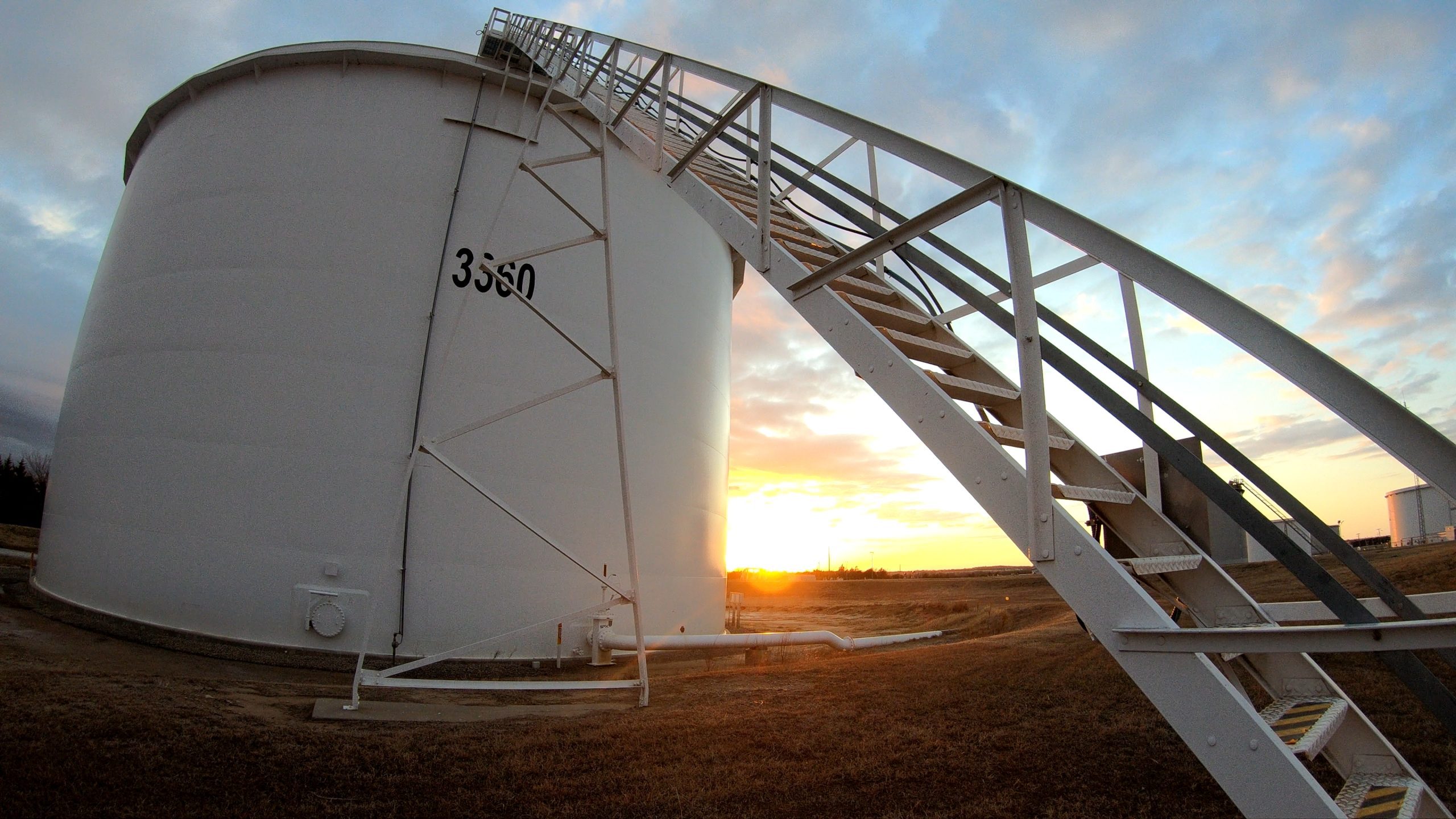Canada and the United States share something that doesn’t exist anywhere else. A vast, interconnected energy network that today produces more oil and gas than any other region – including the Middle East, according to analysis by S&P Global.
It’s a blanket of energy security researchers called “a powerful card to play” in increasingly unstable times.
But, according to two leaders in governance and energy policy, that relationship is at risk.
Analysis has shown that the federal proposal to cap emissions in Canada’s oil and gas sector would result in reduced production. That likely means less energy available to Canada’s largest customer, the United States.
Jamie Tronnes, executive director of the Center for North American Prosperity and Security, is a former Canadian political staffer born in northern Alberta now living in Washington, D.C.
Heather Exner-Pirot is a prominent energy policy analyst and senior fellow with the Ottawa-based Macdonald-Laurier Institute.
Here’s what they shared with CEC.
CEC: The U.S. is one of the world’s largest oil and gas producers. Why does it need imports from Canada?
HEP: It’s because all oil is not the same. The United States developed its refinery industry before the shale revolution, when they were importing heavier crudes. Canada has that heavier crude. They are now exporting some of their sweet light oil and importing Canadian crude because that’s what their refinery mix requires.
What’s interesting is that we have never exported more Canadian crude to the United States than we are right now. Even as they have become the world’s largest oil producer, they’ve never needed Canadian oil more than today.
They also import a ton of natural gas from us. They have become the world’s biggest gas producer and the world’s biggest gas exporter, but part of that, and having their LNG capacity being able to so quickly surpass Qatar and Australia, is because some of the production is being backfilled by Canada.
CEC: Will the incoming new administration (either Democrat or Republican) impact the Canada-U.S. energy relationship?
JT: I don’t see a big change happening in such a way as it did when the Biden administration came in with the axing of the Keystone XL pipeline. Now that Russia has invaded Ukraine, the global energy market has changed radically.
On the Republican side, Trump often repeats the phrase “drill, baby drill.” The issue is that the U.S. is already drilling about as much as demand allows.
I don’t think a Harris government would move quickly to limit oil and gas production without having a strategic alternative in place. It simply would make her look very weak, and she has explicitly said that she would not ban fracking.
In the post-COVID world, I believe that the Democrat side of the aisle is coming to the view that it was a geopolitical mistake in terms of securing North American energy dominance to cut the Keystone XL pipeline.
The reality is that being able to export refined Canadian feedstock is key to keeping the U.S. as an energy superpower.
The U.S. government continues to offer and subsidize tax credits for investment in carbon capture technology. Even though Trump has said that he would end all of those carbon capture credits and subsidies, it still would not stop the U.S. from importing Canadian oil and gas.
That’s only going to grow as things like AI continue to create more demand for energy. A huge amount of the United States electrical energy grid is powered still by natural gas, and that’s going to take decades to change.
CEC: Would a reduction in Canadian production from the federal government’s proposed oil and gas emissions cap impact the United States?
HEP: Yes, and we should be raising the alarm bells. The federal government has said it is a cap on emissions, not a cap on production, but all the analysis that Alberta and the oil and gas sector have done is that it will create somewhere between 1 million and 2 million barrels of production being shut in.
Well, 95 per cent of our exports are to the United States. If we are shutting in 1 million barrels or 2 million barrels, that all comes out of their end just when their shale oil is expected to plateau and decline.
A cap would also tap down natural gas production and LNG capacity. If you’re Japan or South Korea and you’re looking to secure 20 years of supply, the cap creates a lot of uncertainty with that Canadian supply. There’s zero uncertainty with Qatar’s supply. If you’re Japanese, these are not pleasant conversations. This is not giving you confidence. And if you don’t have confidence in LNG, you’re going to burn coal.
In a perfect world, Canada would supply LNG to Asia, the United States would supply it to Europe, and we’d be a pretty energy-independent Western alliance.
I wish we would be honest that we need a different way to reduce emissions that does not take away from production, because that capacity is a big part of what we offer our allies right now.
JT: It threatens the security of North America in a big way because the energy dominance of the United States is tied to Canada. Especially with what’s going on in Russia and other countries, it behooves us as Canadians and me as an American to remember that security is not freely granted.
We have to make sure that we are thinking more holistically when we think of things like emissions cap legislation that’s going to have knock-on effects and may even increase emissions. If you’re trying to replace that feedstock, it’s got to come from somewhere.
The unaltered reproduction of this content is free of charge with attribution to the Canadian Energy Centre.


